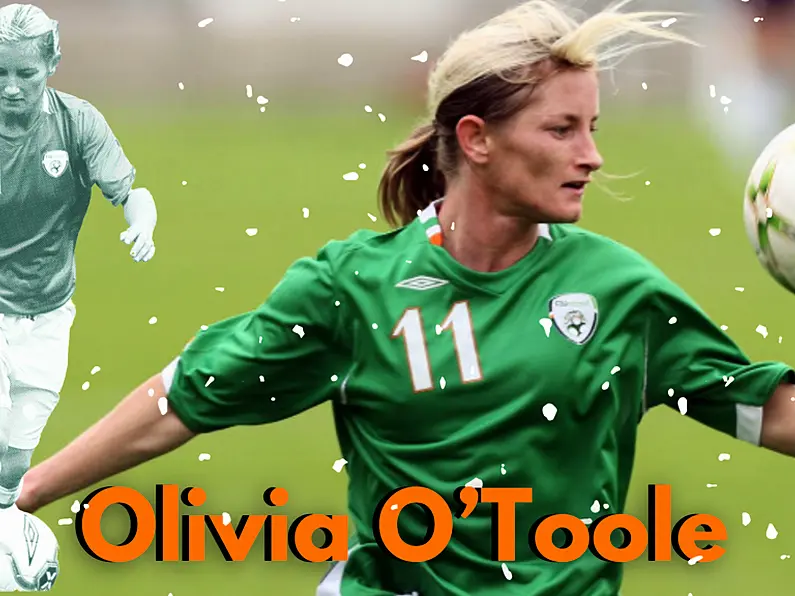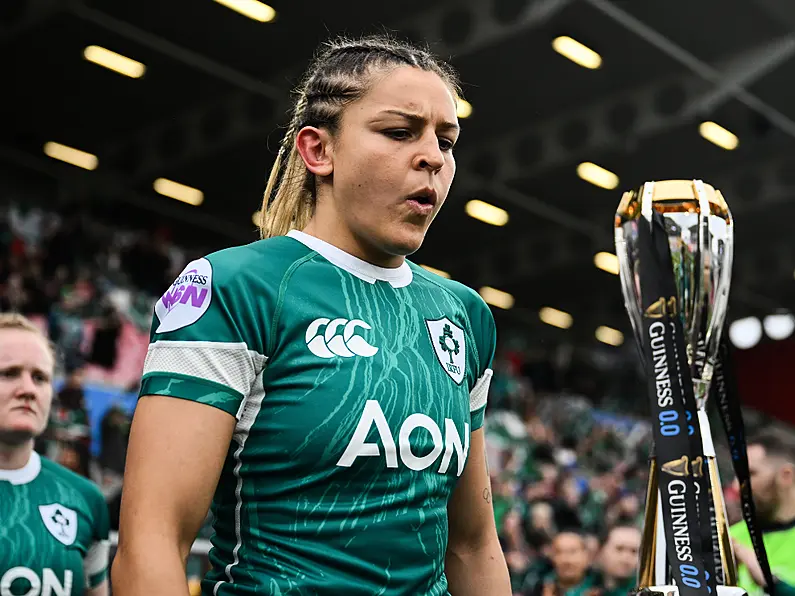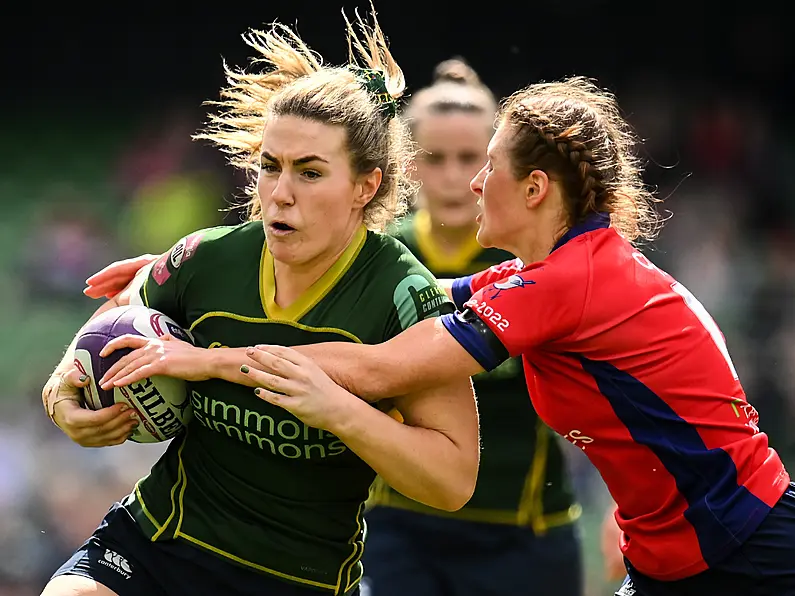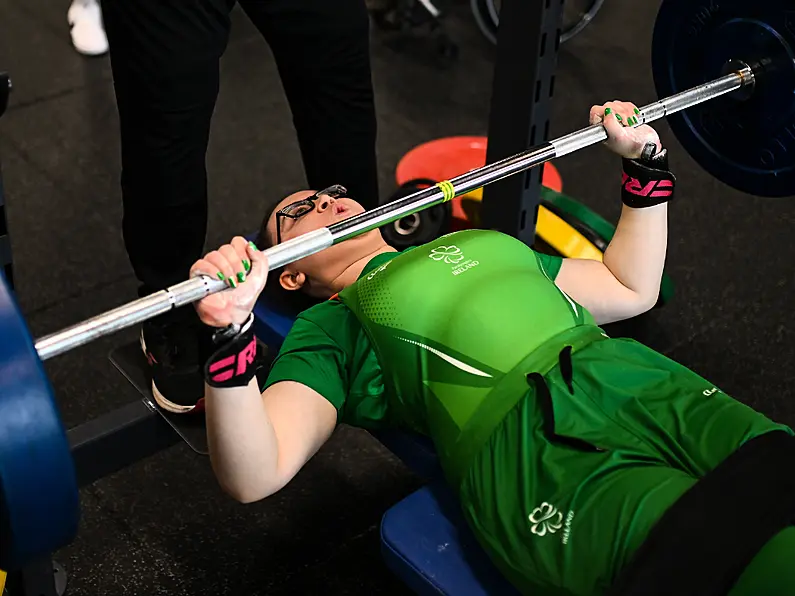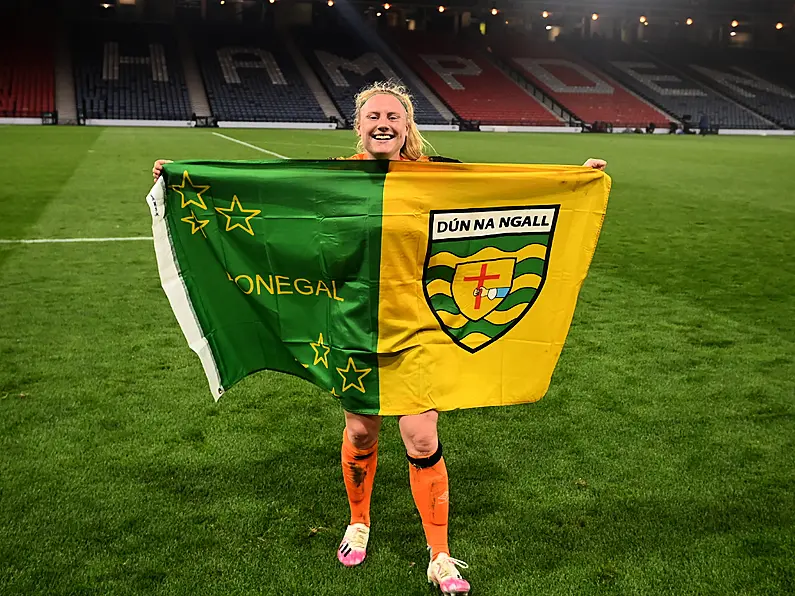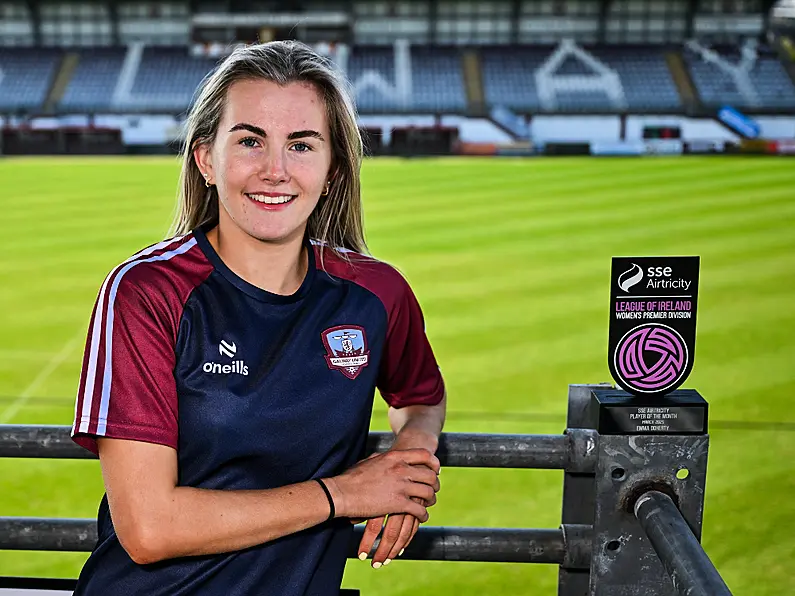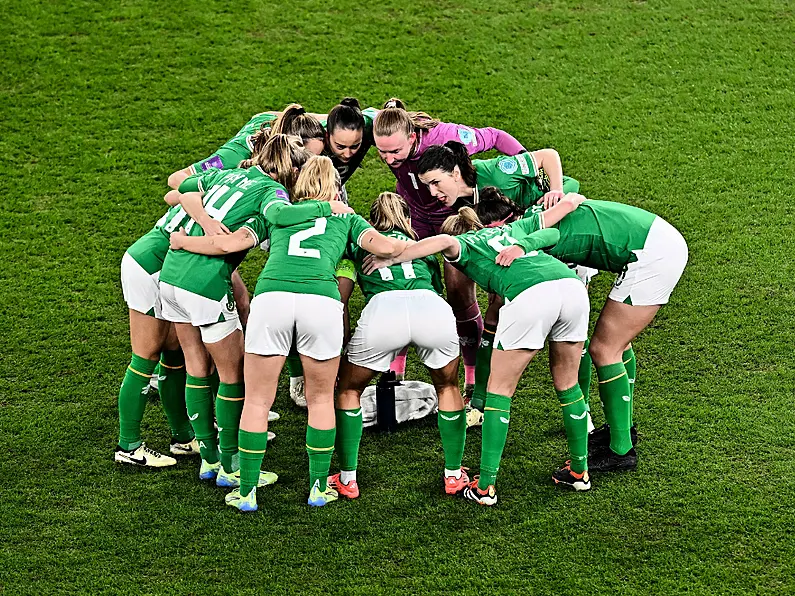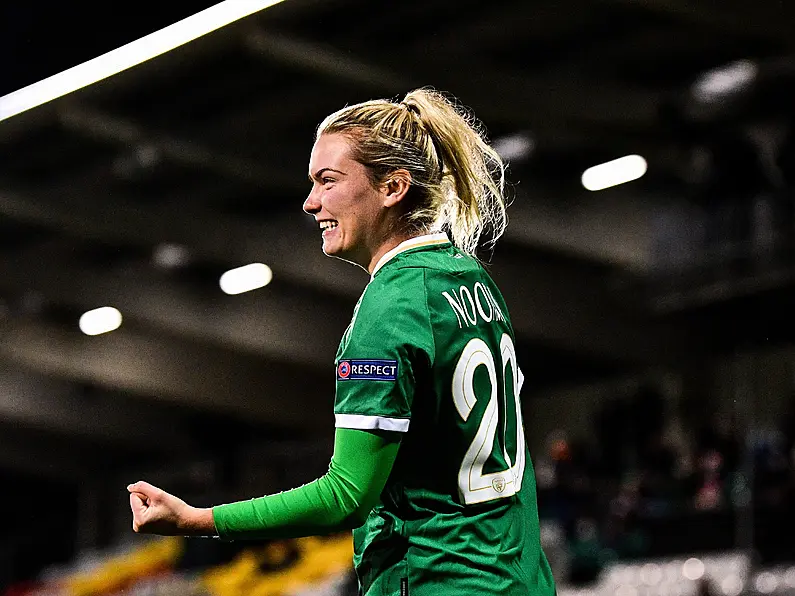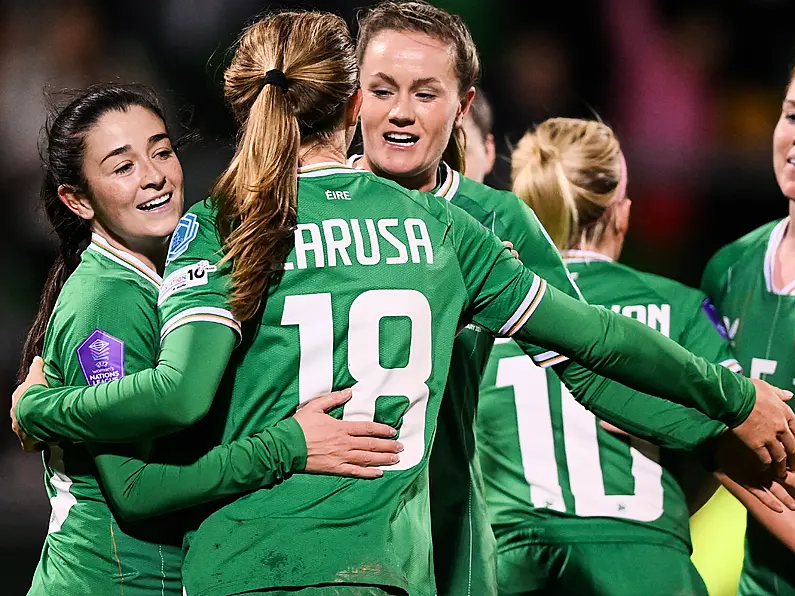By Seana Cooke
Olivia O’Toole sits behind only Robbie Keane in goals scored for Ireland and her international exile immediately affected performances. The three-time player of the year, should be a far more celebrated figure in the Irish game.
Considering the current financial climate within football, it’s hard to imagine a time when players lined out for nothing more than the love of the game. This story isn’t about a finely tuned footballer who was developed at an elite academy and went on to earn millions. Instead, it’s about a very special player, one we are unlikely to see the likes of again, who broke multiple records on the international stage and did it all for nothing more than pride in a green jersey.
Inner-city Dublin in the 1970’s and 80’s was a difficult place to grow up as Ireland endured a decade-long recession. The streets of the capital also became the epicentre of a drug epidemic. There were two options for most young people, drugs or sport. And the sport of choice was usually football. Jumpers for goalposts, no throw-ins or corners, and coaching certainly wasn’t top of the agenda.
Around Dublin, street football was played mainly by boys, with one noted exception. Sheriff Street was the training ground of Olivia O’Toole, one of Ireland’s finest natural talents. Olivia, or ‘Livy’ as she is better known, spent her childhood kicking in yards and alleys and talks fondly of those days. “It was sleep, eat and football. I played with the boys’ team on the weekends until I was about 15 but the street was where I learnt the game. We would play for hours and there were no referees, so you had to learn to be tough and clever with the ball”.
As part of #ShowYourStripes initiative on International Women’s Day, we are announcing three pledges to aid women's football
First up is... Continued recognition of our heroes
We have dedicated tribute alcoves at FAI HQ to ex #IRLWNT internationals Emma Byrne & Olivia O'Toole pic.twitter.com/80S6oB7cHC— FAIreland ⚽️🇮🇪 (@FAIreland) March 8, 2019
‘Livy’ joined Drumcondra women’s team at 16 but it took four years of playing in the local league before her chance for her country would come. O’Toole made her international debut in 1991 in Cordoba, Spain, in front of a stadium packed with 7,000 spectators anticipating an onslaught of home goals. But in the 55th minute, the Irishwoman netted the only goal of the game and gave the Republic their first ever win against a continental team. It would be the first of many records O’Toole would set. It wasn’t until the team returned to Ireland that she understood the significance of that goal. “I actually got a dead leg from taking that shot, so I didn’t even really celebrate,” she said. “I just remember looking up at the sea of Spanish flags to find an Irish one, it was the one we brought with us. But I was bursting with pride. It was only when I got back home, my family and neighbours were showing me the news articles. Everyone was telling me I made history but I didn’t really think too much about it”.
Unfortunately that win was overshadowed by a 10-0 loss to Sweden the following year which resulted in the FAI pulling the team from international competition to undergo a phase of redevelopment. O’Toole and her teammates remained positive and continued to line out for friendlies but it was three years before the side finally re-entered competitive action. The following two years proved fruitful for the women’s team as they scored 26 goals and won seven out of nine matches.
At the start of 1998, now aged 27, O’Toole should have been hitting her peak but instead was left out of the squad, exiled for two years after a difference of opinion with manager Mick Cooke. “It was horrible, I really took it hard,” she recalled. “I was heartbroken. Wearing the green jersey was the thing I lived for and someone had taken it away so easily - I wasn’t in a good place”. That decision not only hit the player but evidently the team too.
We caught up with Irish legend Olivia O'Toole & chatted all things growing up & football.
An incredible story from escaping drugs & fighting inequality to become Irelands leading goalscorer.
Here's a snippet of the controversial exit to Iceland in 2008!https://t.co/CI8M3iJhUZ pic.twitter.com/eU3NyPdnDB
— Her Sport (@HerSportDotIE) March 10, 2020
“It wasn’t an easy period,” said Ireland and Arsenal goalkeeper Emma Byrne. “Other players really did try to step up but no one could give us what Olivia did. We played really direct football then and without Olivia it was very difficult”. In O’Toole’s two-year absence from international football, the team won only a quarter of their §games and scored a low of nine goals. The year 2000 saw a change of management with Noel King replacing Cooke. His first task was to get Livy back in the fold. It didn’t take much convincing. “‘Kinger’ rang me. To be honest I was waiting on the phone call but it wasn’t a long one. I was ready to go back, I just couldn’t wait. I was dying to get back playing matches for Ireland again”. After two tough years, the team finished 2000 with a 60% win percentage, exactly as it was before Livy’s departure.
For the player, 2001 would be the best year of her international career. She played in every game and scored 11 of the 17 goals, most notably putting four past Scotland and a hat trick against Greece. But behind the scenes of the Irish women’s game something else was fuelling these performances. “There were loads of things that just really made me angry at that time - one time we had no pre-match meal, I played a match on a banana. And then there was the time we were asked to go around the local area and hand out posters before the match. I found a way to channel the frustration that benefitted the team and that was scoring goals. It was better than sulking”.
All-Time Ireland XI 🇮🇪 - Forwards
Make your selection of two forwards to represent the All-Time #IRLWNT starting line-up
Lots of great players to choose from...Olivia O'Toole, Michele O'Brien, Fiona O'Sullivan, Stephanie Roche#COYGIG pic.twitter.com/lXpo2fuDts— FAI Women (@FAIWomen) June 1, 2020
By the 03’/04’ campaign, O’Toole’s time on the pitch reduced - the manager opting to use the forward as an impact sub. But even with less playing time, she continued to break records. She netted her fifth career hat trick against Malta in 04’, the first player to do so in a green jersey, a record she still holds today. Later that year the Irish team accepted a friendly invitation to take on World Cup winners, USA in Salt Lake City. Although Ireland came away defeated, it was a highlight for O’Toole: “The stadium was packed, I remember hearing the announcer saying there were 22,000 at the game. People were asking for our autographs and all, it was mad. I came away from that game buzzing”.
While many of her teammates returned to elite clubs in the USA and England after international matches, Livy landed back in Dublin where she could be found playing her club matches at local parks. She’d gone from performing in front of 22,000 people to taping nets to goalposts. For the striker, it made no difference. “I always played football because I loved it. I didn’t care if it was a stadium in Salt Lake City or a park in Dublin”. Crowds would often gather along the sidelines of whatever local pitch O’Toole was playing on. By the end of the game the lines would be full. Passersby would stop to watch her play, and commend her managers on their coaching who would say Olivia didn’t need any; she was a “special player”. Teammate Byrne agreed. “I’ve played with and against some of the best players in the world. You don’t need to tell Messi what to do and the same goes for Olivia. Players like that only come around once in a lifetime”.
Although still lighting up the Dublin leagues, Livy’s time on the international stage lessened from 05’/06’, when she played in less than half of the national team’s matches. But the striker yearned to reach a major finals. During the European qualifying campaign of 07’/08’, now at 36, she maintained the impact sub role while players like Michelle O’Brien, Stef Curtis and Fiona O’Sullivan benefitted from her presence in the squad. Knowing she was there pushing for a starting place and could still put goals away kept them on their toes.
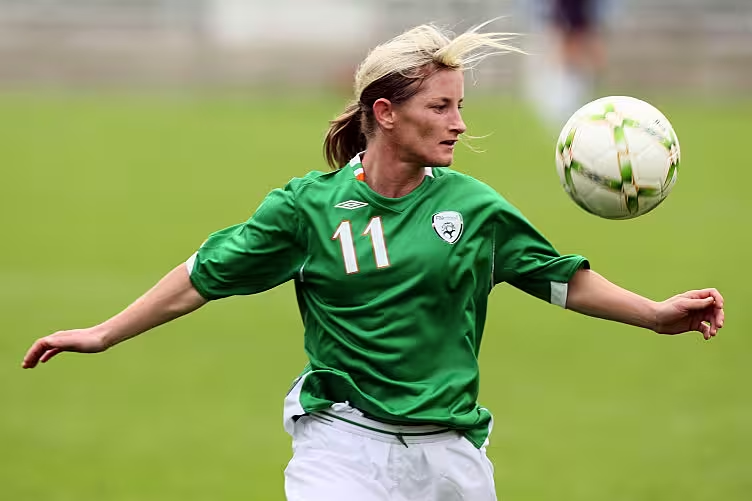
The Irish team reached the UEFA Euro 2009 play-off stage, the best finish the country has had to date. “I was itching to get on in the first game,” said O’Toole. “They scored after two minutes and I just knew if I got on I would make something happen. I set up Stef who equalised and that gave us a real chance in the second game. That felt brilliant.”
Ireland travelled to Reykjavik full of confidence but when they got to the stadium, their hearts sank. The pitch was like an ice rink but the referee refused to postpone the game. The ‘Girls in Green’ struggled to adapt to the slippery surface and Iceland ran out 3-0 winners. Ireland were out, and Livy was done. “That was hard to take, to be so close after so many hard years and then to lose because of the condition of a pitch. It was devastating - it took weeks for that feeling to leave. I wasn’t sure I could go through it again.”
With a new campaign on the horizon in 2009 and her longtime teammates Claire Scanlan and Sharon Boyle retiring, O’Toole was torn between her heart and head. “I didn’t feel ready to retire, it kind of just happened,” she said. The FAI invited Reading FC for a friendly in honour of the three players. The game was set to be played in Tolka Park but was relocated to the AUL, a football facility on the outskirts of Dublin. Livy looks back on that occasion with disappointment. Ireland won the game 3-0, with O’Toole scoring one and assisting the other goals. “I told my family not to come, I didn’t want them standing on the side of the pitch in a training facility - that’s not how I wanted them to remember my career. Then after the game, in the middle of a hotel, we were each handed a bouquet of flowers and thanked for our service. Eighteen years of my life and that was it. When you think of the send off the male players get and that’s all we got, I feel so low about how it ended.”
With 130 caps, 54 goals, five hat tricks, scoring the goal to give Ireland their first win against a continental team and providing the assist of hope in the Euro play-offs, a career that should have ended with a bang was allowed to merely fade out. At one time, the record goalscorer and caps holder, male or female, if one asked if O’Toole was the best Irish player to never make it to a major tournament, debate would definitely ensue. What is certain is that Livy was one of the most naturally gifted players to ever wear the green jersey and it was an unconditional love that pushed her to earn the title of arguably Ireland’s most influential player.

Seana Cooke is a former Irish international, lifelong League of Ireland fan and ex-player from Dublin’s north inner city.
